Mike: You pointed to somewhat irreconcilable elements of modern society in Hurricane Diane, and I don’t know that you would ever be able to fit the play into your definition of comedy in the Shakespearean sense. Because there is no “release.”
Madeleine: The play is about the bemusing and extremely common set of contradictory behaviors that many of us who live at a certain socioeconomic level in the West have. We’re like, Oh my God, we’re wrecking the earth, we have to stop, and then we just keep on wrecking the earth, day in, day out. That’s a constant paradox we’re living out in our daily lives, which is ripe for comedy.
Mike: Living in that tension, which is what I am also trying to do with comedy, is by its nature irreconcilable. When I think about comedy, I’m thinking more about using a set of tools to investigate something that means a lot to me. I feel like using the tools of tragedy would be less affecting than using the tools of comedy.
Do you think TV comedy is better able to achieve the definition you’re using, in terms of bringing some sort of release or reconciliation of opposing views?
Madeleine: Maybe TV comedy is better suited to the more simple-minded drive towards a happy ending at this moment. Right now, people’s brains are so scrambled, their attention is fractured. Audiences’ heads are filled with complexity, and it’s hard to get them to turn in one direction and it’s hard to get them to keep their eye on a prize. That’s not a bad thing, it’s a good bar to try to rise to. I mean, a joke is in some sense an agreement, right? For a joke to work, everybody in the room has to assent to a proposition.
Mike: Yeah.
I was used to writing in a satirical mode, but our world is so beyond satire right now.
Madeleine: That’s a tantalizing thing to do as a writer, to set that up. But it’s also hard.
Mike: One asset TV has is that a show can make audiences stick around until season two or three to see what it is up to. We don’t get that time in the theatre. We have an audience that has a preloaded expectation of what the evening is supposed to be, and we have two hours, or three if we’re being indulgent, to convince them of that. And then we release them to their previous circumstances as opposed to indoctrinating them over months.
Madeleine: I like the idea of theatrical comedy as a practice of catch-and-release! I referenced Teenage Dick earlier because I’ve laughed at it so hard so many times, but what other plays of yours have used comedy as a tool to look at things that matter to you?
Mike: I started out writing stuff that was purely meant to be silly and please, and then I felt a growing political consciousness that I wanted to try to marry to that style. That’s always been the language I’ve been using, but increasingly towards more strident purposes. I do have an interesting relationship with the audience, because it’s such a vulnerable thing to write a play.
Madeleine: I’ve been thinking about that vulnerability so much.
Mike: You’re very exposed as a playwright. The reviews for a new play often focus so much on the writing, not really speaking to how so many people have come together to put the thing up—in both positive or negative ways. I’ve had actors sell lines that aren’t that great and get credit for them, in the same way that I’ve been slammed for things that aren’t my fault.
You’re sitting there watching the audience take in the thing you created. For me, that can be a very antagonistic energy, and the jokes play into it. I sometimes find that in previews, almost like a defense mechanism, I adopt this sense of like, “Bahaha, you laughed at one thing, but then I’m going to hit you with this other thing!” It’s like playing games with the audience; you’re observing them while they’re observing you through your work. The jokes are supposed to be funny, but it’s a way of wielding power.
I don’t know how writers do straight-up dramas, because doing comedy you get constant feedback from the laughter. I wonder whether somebody who writes a pure drama sits there thinking, “That was a really silent moment, and that’s good because it’s going to set up this gasp over here” in the same way I’m like, “Haha, you laughed at that, so I can distract you with this.”
Madeleine: Do you suppose there’s a confidence differential between playwrights who look for silence and gasps versus playwrights who look for laughter or horror? You say it’s a way of wielding power. Maybe that’s related in an inverse way to how vulnerable writers feel.
Mike: I feel like there’s: “What are you trying to do with your play?” Then there’s: “What are the tools you’re using to achieve that?” And then there’s: “How do you listen to the audience and use that to know whether those tools are in tune?” It’s multilayered. I can’t project upon a writer who has done a drama what they hoped for in the first place or how they’re listening to something, so it’s hard to say. But you know how it’s said of some actors who default to comedy that there’s an insecurity, especially if it’s a scene steal-y type of comedy?
Madeleine: Oh sure.
Mike: They’re like: “I need to hear feedback from the audience to know I’m good with them.” I’ve definitely had the equivalent as a writer, that I don’t have the confidence to really drive home something, so I’ll settle for cheap laughs. But as the purpose of my plays has gotten more serious, I’ve tried to shy away from that a little more.
I tend to frontload my plays with a lot of information just to get to a place of being able to say, “Are we all agreed about this so we can laugh about that?”
Madeleine: This is interesting in terms of wielding power and writing a play like that, and then having what amounts to a political agenda. You know what I mean? That’s a very delicate balance. It’s difficult to figure out how to talk, in stage time, about the resources of the world and how they’re distributed and what you believe about how they should be marshaled. You can really stomp around in a bad way on stage if you give yourself license to lean into that. But, on the other hand, how can we not be talking about that stuff all the time, in some way or another?
Mike: Yeah. There’s a piece in the New York Times about playwright Taylor Mac using a maximalist aesthetic, where Taylor says, “Subtlety is a privilege.” I think a lot about the way I see the world versus who the audience is that’s coming to see my plays. We’re starting at a very different place, whether by race or class or just even politics.
Madeleine: You assume they are?
Mike: Oftentimes I’m doing plays from an underrepresented perspective; for example, I don’t assume most of the people coming to see Teenage Dick are disabled (although I am myself able-bodied). Or for my play Tiger Style!, I don’t assume most people coming in are Asian-American, or more specifically Chinese-American or third-generation Chinese. Nobody’s coming from my particular perspective, so there’s a lot of training involved. I tend to frontload my plays with a lot of information just to get to a place of being able to say, “Are we all agreed about this so we can laugh about that?”
I think about some plays that are a lot more deliberate or delicate or subtle compared to mine. Those writers seem to have the confidence that they’re going to be listened to or understood, and therefore that the glacial emotional movement of their characters will be received. I just don’t have that confidence built in ever; I tend to bombard the audience with context out of a sense of having to justify and explain myself. That’s come from writing something from my perspective and hearing, during previews, the laughs come in the wrong places—what the audience is laughing at is not what I thought I was putting out there, whether that’s because of the writing or because my point of view is being deliberately misinterpreted.
It’s so tricky feeling like I have to write from a place of “Am I going to be understood?” It’s hard not to overcompensate, and sometimes I feel like I play my hand maybe too quickly.
It’s so tricky feeling like I have to write from a place of “Am I going to be understood?”
Madeleine: If maximalism is attractive to you, it’s a good match.
Mike: Maximalism was Taylor Mac’s term; I don’t know if that’s where I’m going with my work. Taylor was positing that coming from a place of more subtlety is a luxury or a privilege, which is an interesting way of thinking about it because I don’t know that I’m ever going to go in with that trust of being inherently understood. But the more people know my work, the more I wonder if I could actually play a longer game.
Having come from Hurricane Diane, are you now in more of a comedic mode?
Madeleine: Yeah, I’ve doubled down on comedy for now. I’m working on a Faust play set in a bowling alley about the end of the patriarchy. It’s not super sophisticated. I have a lot of shame around the low-marked nature of comedy and the stupidity of the jokes that I most urgently—and from the depths of my soul—want to tell. It’s something to do with my upbringing, I guess, that I find it humiliating to be that kind of writer. That must be why it’s taken me twenty-five years to fully pledge myself to doing dumb jokes. I get defensive when people read my work and say, “It’s so fun,” when in the back of my mind I’m thinking, It’s about dismantling the patriarchy, it’s a serious play, what do you mean "fun," it’s deadly serious. But of course I’m also all about fun. I don’t want anything about my play’s execution to feel serious.
What’s your next comedic work?
Mike: I’m going to write a play about my baby being in the NICU, so it’s going to be a different kind of comedy, if it’s a comedy. It’s good to change up modes every now and then. You know how some plays are easy and some are hard, in terms of where they come from and how long it takes to beat them into shape? I feel like it’ll be easy to write an NICU play, but the style of it is very hard to figure out because it’s not going to be the same mode I’ve been in.
Madeleine: Do you think you might work in naturalism?
Mike: I’m tempted to.

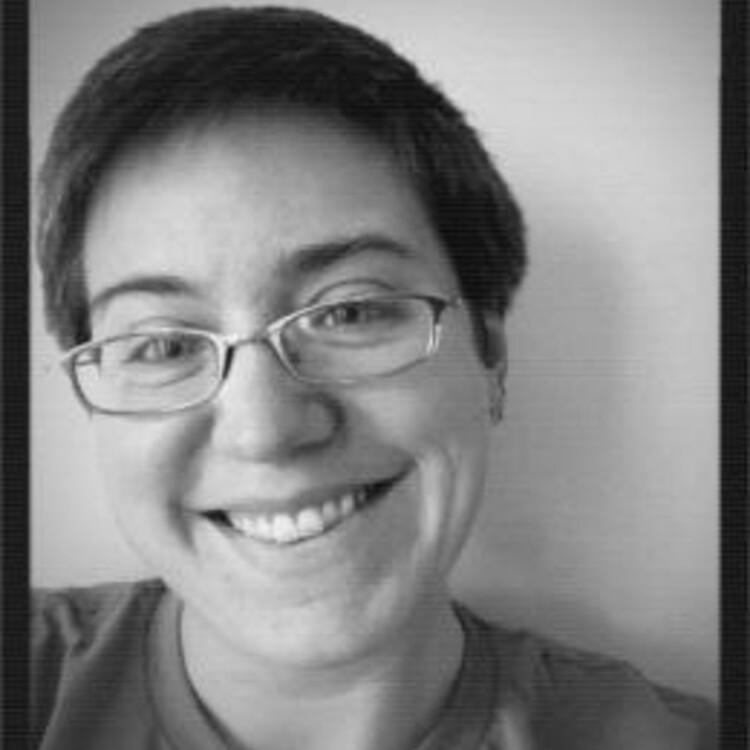
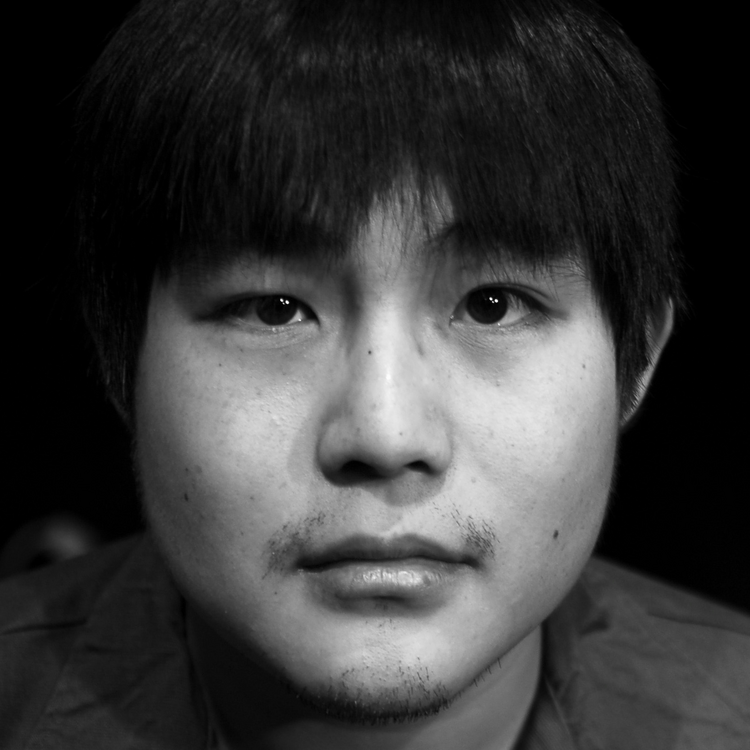
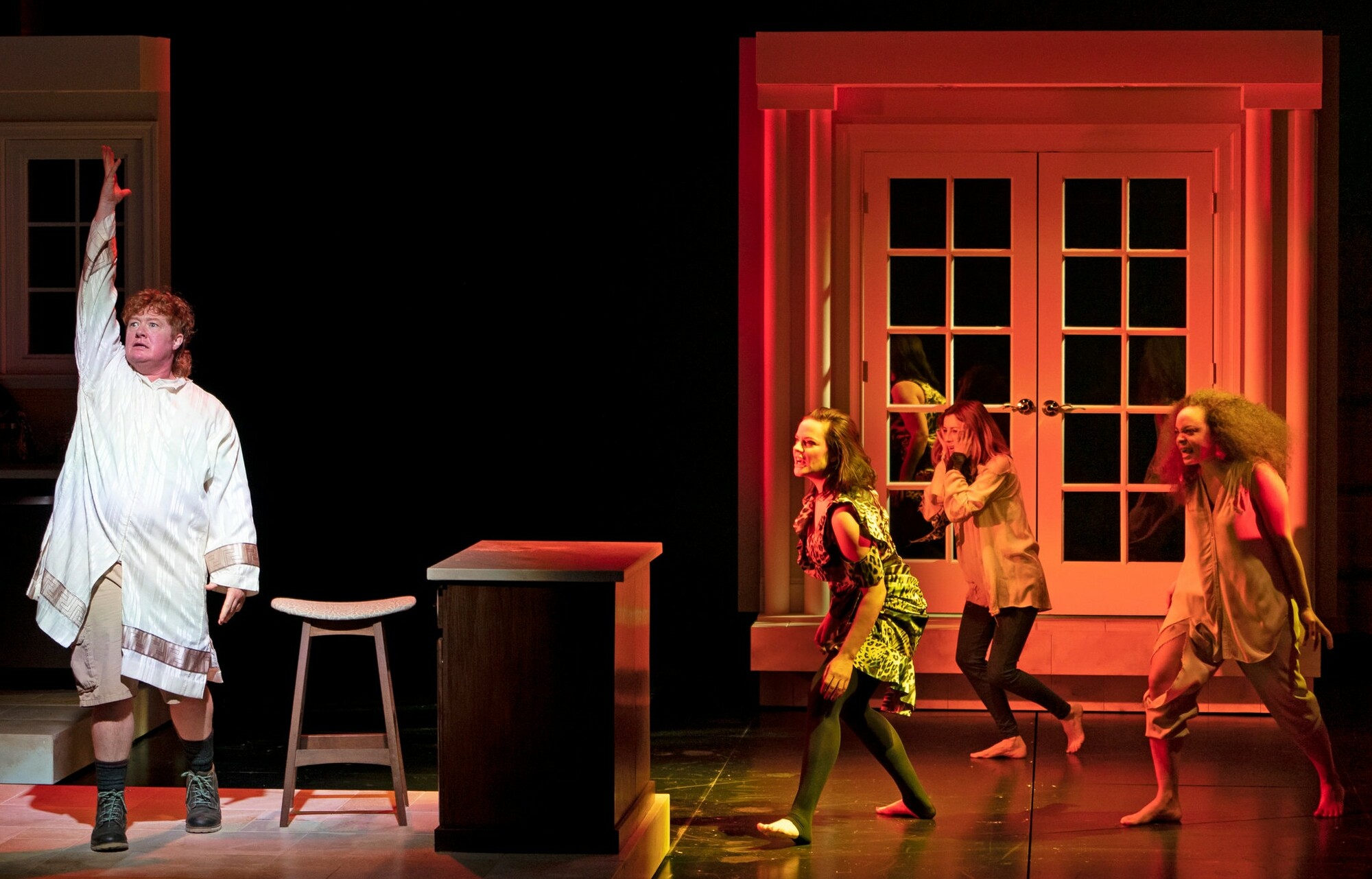
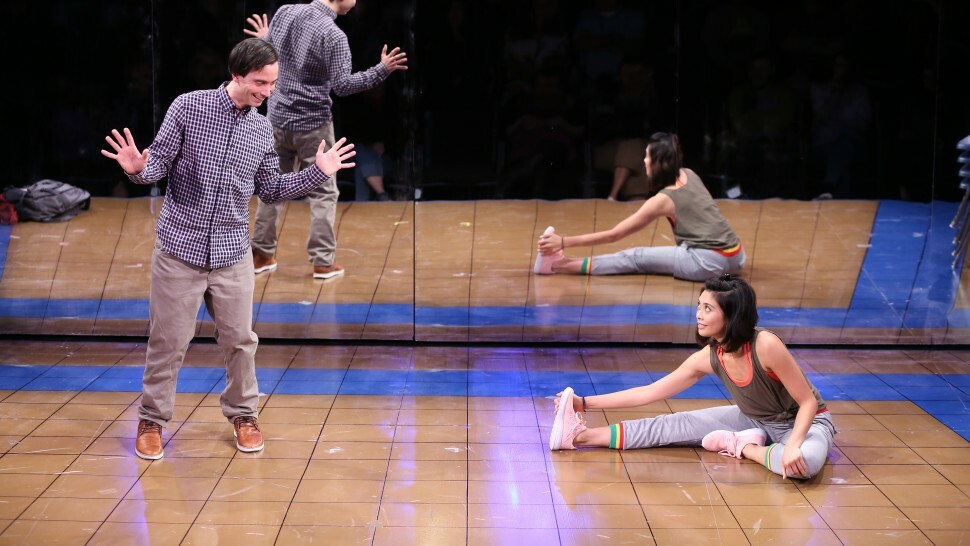

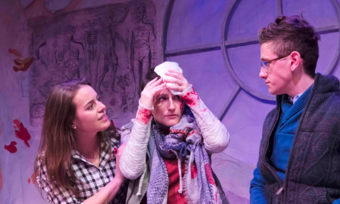


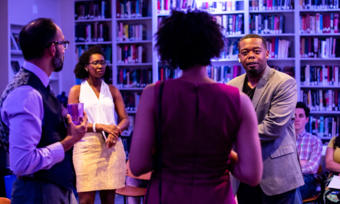


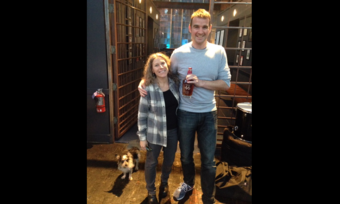

Comments
The article is just the start of the conversation—we want to know what you think about this subject, too! HowlRound is a space for knowledge-sharing, and we welcome spirited, thoughtful, and on-topic dialogue. Find our full comments policy here